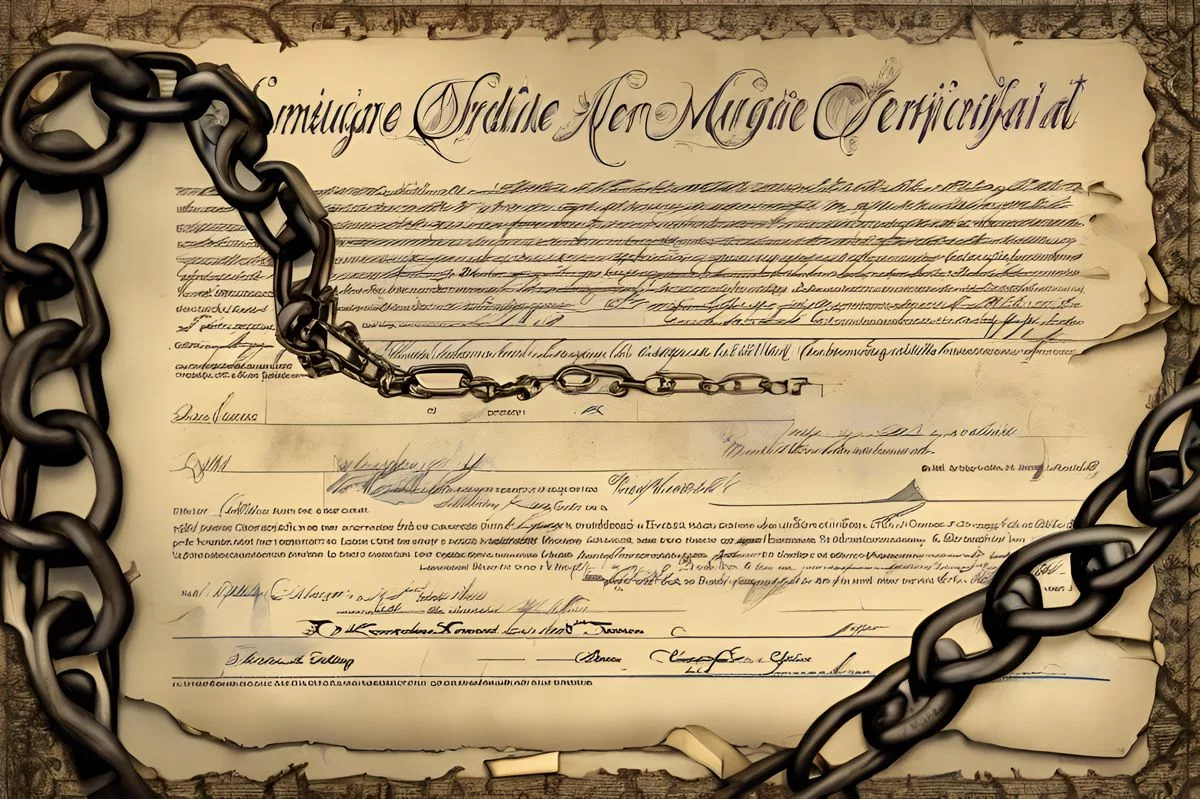In a groundbreaking ruling, the Free State High Court in South Africa has declared that men can now take their spouse’s surname without facing any barriers, a change that highlights the importance of gender equality. Previously, only women had this right, marking a clear discrimination against men. This decision paves the way for both partners in a marriage to choose their identity freely, moving away from outdated traditions. The court’s ruling not only recognizes personal autonomy but also sets a powerful example for future laws, urging society to embrace true equality for everyone.
What was the landmark ruling on surname equality in South Africa?
The Free State High Court ruled that men can now adopt their spouse’s surname without bureaucratic barriers, declaring the previous law unconstitutional. This decision promotes gender equality, allowing both men and women equal rights in surname adoption, reflecting contemporary values of personal autonomy.
A Breakthrough in Gender Equality
The Free State High Court in South Africa recently made a groundbreaking decision, declaring section 26(1) of the Births and Deaths Registration Act 51 of 1992 unconstitutional. This particular section had previously allowed only women to adopt their husband’s surname following marriage, thereby excluding men from this right. The case was brought forward by four applicants who had been denied the ability to take their wife’s surname, highlighting a glaring instance of gender-based discrimination. The court determined that section 26(1)(a)-(c) of the Act, as well as Regulation 18(2)(a), contravened the right to equality as outlined in section 9(2) of the South African Constitution. This constitutional provision asserts that everyone is equal before the law and should fully and equally enjoy all rights and freedoms, calling for legislative measures to support individuals disadvantaged by discriminatory practices.
Prior to this ruling, men had to undergo a bureaucratic process through the Director-General to change their surname, while women were automatically granted this right. The court’s decision declared this provision unconstitutional, stressing the need to honor contemporary values of equality. This ruling highlights the necessity for legal frameworks to evolve and reflect modern principles of gender equality, moving away from patriarchal systems that have historically treated men and women unequally in matters of surname changes.
Implications of the Judgment
This landmark decision has far-reaching implications for personal identity and autonomy. By suspending the unconstitutional provision, the court has allowed men to adopt their spouse’s surname without facing bureaucratic obstacles. Parliament now has a 24-month window to amend the current law or introduce new legislation that aligns with gender equality standards. This ruling could potentially reshape how South African law balances individual identity with entrenched gender roles.
The court’s decision not only addresses the specific issue of surname changes but also underscores the broader principle that laws should not perpetuate gender-based discrimination. By ensuring that men and women are treated equally in this regard, the ruling sets a precedent for future legal challenges aimed at promoting gender equality. This judgment encourages a reevaluation of other outdated laws that may still harbor discriminatory elements, pushing for a more egalitarian legal landscape.
Modern Feminism or Equality?
The ruling provokes a thought-provoking question: Was the exclusive provision for women genuinely discriminatory, or is it part of modern feminism’s broader effort to dismantle traditional gender roles? Critics might argue that men weren’t actively seeking surname changes, implying that this issue was not particularly pressing. However, the court’s decision clarifies that genuine equality means offering identical options to all individuals, regardless of gender. This case transcends the matter of surnames, challenging the deep-seated, patriarchal notions about the roles of men and women in marriage.
By addressing this issue, the court has taken a critical step in breaking down archaic gender norms and promoting a more progressive understanding of marital roles. This ruling exemplifies how legal decisions can serve as catalysts for societal change, fostering a culture of equality and respect for individual choices. The judgment reinforces the idea that true equality involves more than just eliminating overt discrimination—it requires dismantling the subtle, systemic biases that have long shaped societal expectations.
What Comes Next?
This pivotal ruling calls on the government to update outdated laws, but it raises the question of how extensive these revisions should be. Is this merely an issue of equality, or does it signify a broader societal push to break traditional gender norms? This decision has sparked a debate about whether long-standing societal norms need reevaluation in today’s world, where equality demands more than just words on paper.
As Parliament works to draft new legislation, there will be a need for careful consideration to ensure that the new laws effectively address the inequalities highlighted by this case. This process will involve engaging with various stakeholders, including legal experts, gender equality advocates, and the broader public, to create a legal framework that truly reflects contemporary values. The outcome of this legislative process will likely have a lasting impact on the pursuit of gender equality in South Africa, setting a standard for other nations to follow.
A Historical Perspective
The tradition of adopting surnames has deep roots in patriarchal history. In many cultures, when a woman took her husband’s surname, it symbolized a transfer of guardianship—a relic from a time when women were regarded as property. Feminist movements worldwide have long challenged these norms, advocating for women’s autonomy and equal standing in marriage. The recent ruling in South Africa represents another significant step in challenging and redefining these outdated gender norms.
By recognizing the right of men to adopt their spouse’s surname, the court has taken a decisive stand against the remnants of patriarchal traditions. This decision aligns with the broader goals of feminist movements, which seek to dismantle systems of oppression and promote gender equality in all aspects of life. The ruling serves as a reminder that legal reforms are crucial in the ongoing struggle for gender equality, providing a foundation for further progress in the fight against discriminatory practices.
A Legal Milestone
This judgment is a milestone in the legal interpretation of equality. By overturning a law that explicitly favored one gender over another, the court has reaffirmed its commitment to upholding the principles enshrined in the Constitution. This decision addresses the specific issue of surname changes while also signaling a broader commitment to eradicating gender-based discrimination in all its forms.
From a legal perspective, this ruling sets a precedent for future cases involving gender equality. It demonstrates the judiciary’s willingness to challenge discriminatory laws and reinforces the importance of a legal system that reflects contemporary values. This judgment will likely influence other courts and lawmakers, encouraging them to scrutinize existing laws and policies to ensure they align with the principles of equality and justice.
Broader Societal Impact
Beyond the legal implications, this ruling has the potential to transform societal perceptions of gender roles. By affirming that men should have the same rights as women in adopting a spouse’s surname, the court challenges traditional gender norms and promotes a more egalitarian view of marital roles. This shift could inspire further legal and social reforms aimed at achieving genuine gender equality.
The court’s decision may encourage individuals to question and challenge other societal norms that perpetuate gender inequality. As legal frameworks evolve to reflect modern values, societal attitudes must also change to embrace a more inclusive and equitable understanding of gender roles. This ruling can serve as a catalyst for broader conversations about gender equality, highlighting the need for continuous efforts to address and dismantle deeply ingrained cultural biases.
Reflection on Modern Values
This ruling mirrors a broader trend towards embracing modern values of equality and personal autonomy. In an increasingly globalized world, where diverse cultures and perspectives intersect, legal systems must evolve to reflect these changes. By recognizing the right of men to adopt their spouse’s surname, the South African court acknowledges the evolving nature of marital relationships and the necessity to adapt legal frameworks accordingly.
The decision reflects a growing recognition of the importance of personal autonomy and the right to self-identify. A surname is more than just a name; it is a significant aspect of one’s identity. By granting men the same rights as women in this regard, the court affirms the importance of personal choice in shaping one’s identity. This ruling empowers individuals to make decisions that reflect their personal values and relationships, free from outdated legal constraints.
Personal Autonomy and Identity
At its core, this ruling champions personal autonomy and the right to self-identify. A surname is a crucial element of one’s identity, carrying significant personal and cultural meaning. By granting men the same rights as women in this realm, the court underscores the importance of personal choice in defining one’s identity. This decision empowers individuals to make decisions that reflect their personal values and relationships, free from archaic legal constraints.
The ruling also highlights the broader principle that legal systems should respect and protect individual autonomy. By removing discriminatory barriers, the court has affirmed the right of individuals to make choices about their identity and personal relationships. This decision serves as a reminder that true equality involves recognizing and supporting the diverse ways in which individuals choose to express their identities and relationships.
The Road Ahead
While the ruling is a significant step towards gender equality, it also underscores the ongoing need for vigilance in addressing discriminatory practices. The court’s decision mandates legislative action, compelling lawmakers to draft and implement laws that reflect contemporary values of gender equality. This process will require careful consideration to ensure that new laws effectively address the inequalities highlighted by this case.
As Parliament works to amend the current law or introduce new legislation, it will be crucial to engage with various stakeholders to create a comprehensive legal framework that promotes gender equality. This process will involve not only legal experts but also gender equality advocates, civil society organizations, and the broader public. By fostering an inclusive and participatory approach, lawmakers can ensure that the new laws effectively address the issues raised by this case and contribute to a more equitable society.
Societal Conversations
Finally, this ruling invites society to engage in broader conversations about gender roles and equality. As legal frameworks evolve, so too must societal attitudes. This case serves as a reminder that achieving true equality extends beyond legal reforms; it requires a collective effort to challenge and change deeply ingrained cultural norms.
The ruling encourages individuals and communities to reflect on their beliefs and practices regarding gender roles. By fostering open and honest conversations about equality, society can work towards dismantling the subtle, systemic biases that have long shaped gender expectations. This ruling serves as a catalyst for these important discussions, highlighting the need for continuous efforts to promote and achieve genuine gender equality.
In conclusion, the Free State High Court’s ruling represents a significant advance in the quest for gender equality in South Africa. By declaring section 26(1) of the Births and Deaths Registration Act unconstitutional, the court has affirmed the importance of personal autonomy and equality before the law. This decision underscores the necessity for laws to reflect modern values of equality and personal choice, challenging traditional gender norms and promoting a more egalitarian view of marital roles.
FAQ on Landmark Ruling on Surname Equality in South Africa
What was the landmark ruling on surname equality in South Africa?
The Free State High Court ruled that men can now adopt their spouse’s surname without bureaucratic barriers, declaring the previous law unconstitutional. This decision promotes gender equality, allowing both men and women equal rights in surname adoption, and reflects contemporary values of personal autonomy.
Why was the previous law regarding surname adoption considered discriminatory?
The previous law, which allowed only women to adopt their husband’s surname, was deemed discriminatory because it excluded men from having the same right. This inequality highlighted systemic gender-based discrimination, which the court ruled violated the right to equality as outlined in the South African Constitution.
What are the implications of this ruling for future laws in South Africa?
The ruling mandates Parliament to amend the current law or introduce new legislation within 24 months to align with gender equality standards. It sets a legal precedent for challenging other discriminatory laws and encourages a reevaluation of societal norms surrounding gender roles.
How does this ruling reflect modern values of gender equality?
The ruling underscores the importance of personal autonomy and the right to self-identify, indicating that legal systems must adapt to contemporary understandings of gender roles. By recognizing men’s rights to adopt their spouse’s surname, it promotes a more egalitarian view of relationships in marriage.
What broader societal conversations does this ruling ignite?
This decision invites discussions on gender roles and equality, urging society to reflect on cultural norms that perpetuate inequality. It encourages individuals and communities to engage in open dialogue about the significance of personal choices in defining identity and relationships.
What steps will be taken following this ruling to ensure gender equality is upheld?
Following the ruling, lawmakers must engage with various stakeholders, including legal experts and gender equality advocates, to draft effective legislation. This inclusive approach aims to ensure that new laws comprehensively address the issues highlighted by the case and promote a more equitable society.












